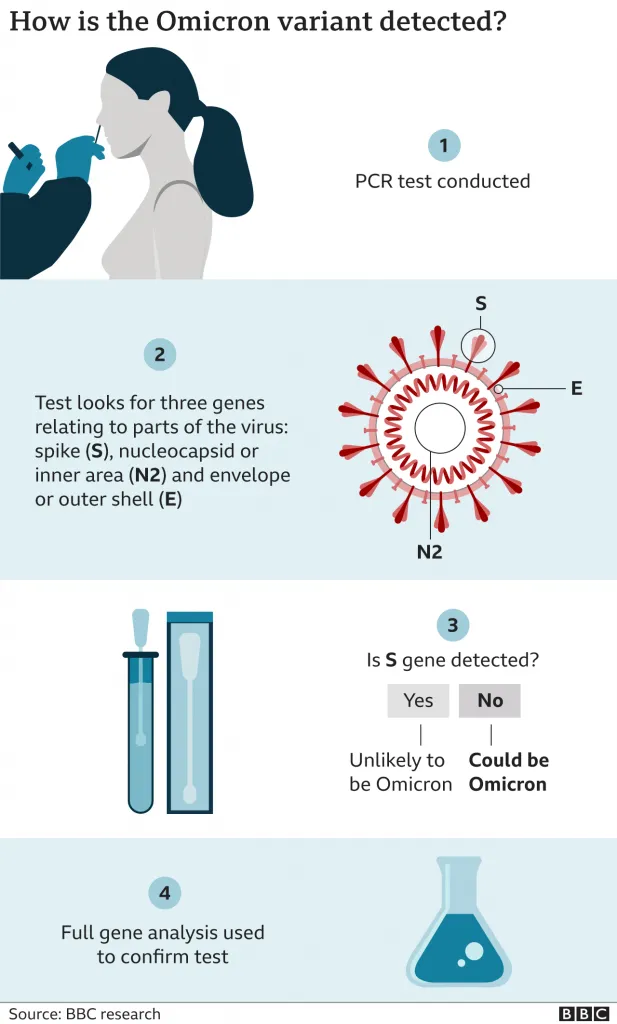1. When was Omicron first detected?
The new variant of SARS-CoV-2, B.1.1.529 has been reported to the World Health Organization (WHO) on November 11, 2021, in Botswana and on November 14, 2021, in South Africa. The World Health Organization named the B.1.1.529 Omicron and classified it as a Variant of Concern (VOC) on 26th November 2021.
2. Why are we worried about Omicron?
- Omicron is a heavily mutated variant, including 32 mutations on its spike protein. This is more than double of what is carried by Delta.
- As of 22nd December 2021, the Omicron variant was identified in 110 countries across all six WHO Regions.
- The current understanding of the Omicron variant continues evolving as more data becomes available.
3. What is the difference between the Delta variant and the Omicron variant?
- Delta variant is twice as contagious as earlier variants and might cause more severe symptoms.
- Omicron is spreading faster than the Delta variant in countries with a timeframe of 2-3 days.
- But it is not yet clear if Omicron causes more severe symptoms than other variants.
4.What are the severe symptoms of the Omicron?
No severe symptom such as loss of smell or taste, high temperature or severely blocked nose in the new strain has been noted so far. Delta variant had intense issues like breathing, such things have not been noticed in Omicron so far. It has been noticed that the Omicron variant cases have mild symptoms such as Mild Fever, Fatigue, Body Aches, Severe headache.
* Scientists are currently investigating Omicron, including how protected fully vaccinated people can be against infection, hospitalization, and death.
5. Will vaccines work against Omicron?
Getting vaccinated and practicing protective behaviors are highly effective ways to protect yourself against serious illness and death from all variants.

6. Can we expect future mutations?
The more a virus spreads, the more are the chances to mutate and some mutations lead to new variants. Scientists are particularly concerned about changes in the spike protein, the part that helps the virus to enter human cells. The best way to prevent mutations is to vaccinate as many people as possible.
Did you know?
Omicron is the 15th letter of the Greek alphabet.
- Αα Alpha
- Ββ Beta
- Γγ Gamma
- Δδ Delta
- Εε Epsilon
- Ζζ Zeta
- Ηη Eta
- Θθ Theta
- Ιι Iota
- Κκ Kappa
- Λλ Lambda
- Μμ Mu
- Νν Nu
- Ξξ Xi
- Οο Omicron
- Ππ Pi
- Ρρ Rho
- Σσς Sigma
- Ττ Tau
- Υυ Upsilon
- Φφ Phi
- Χχ Chi
- Ψψ Psi
- Ωω Omega
Did you know?
Alpha: First detected in the UK on October 2020, B.1.1.7
Beta: First detected in South Africa on December 2020, B.1.351
Gamma: First detected in Brazil on January 2021, P.1 (from B1.1.28)
Delta: First detected in India in October 2020. B.1.617.2
Epsilon: First detected in California on July 2020, B.1.429, B.1.427
Zeta: First detected in Rio De Janeiro on July 2021. P.2 (from B.1.1.28)
Eta: First detected in UK and Nigeria on December 2020, B.1.525
Theta: First detected in the Philippines on February 2021, P.3
Iota: First detected in New York City on November 2020, B.1.526
Kappa: First detected in India on December 2020, B.1.617.1
Lambda: First detected in Peru on August 2020, C.37
Mu: First detected in Colombia on January 2021, B.1.621
Omicron: First detected in Botswana and South Africa on November 2021, B.1.1.529

